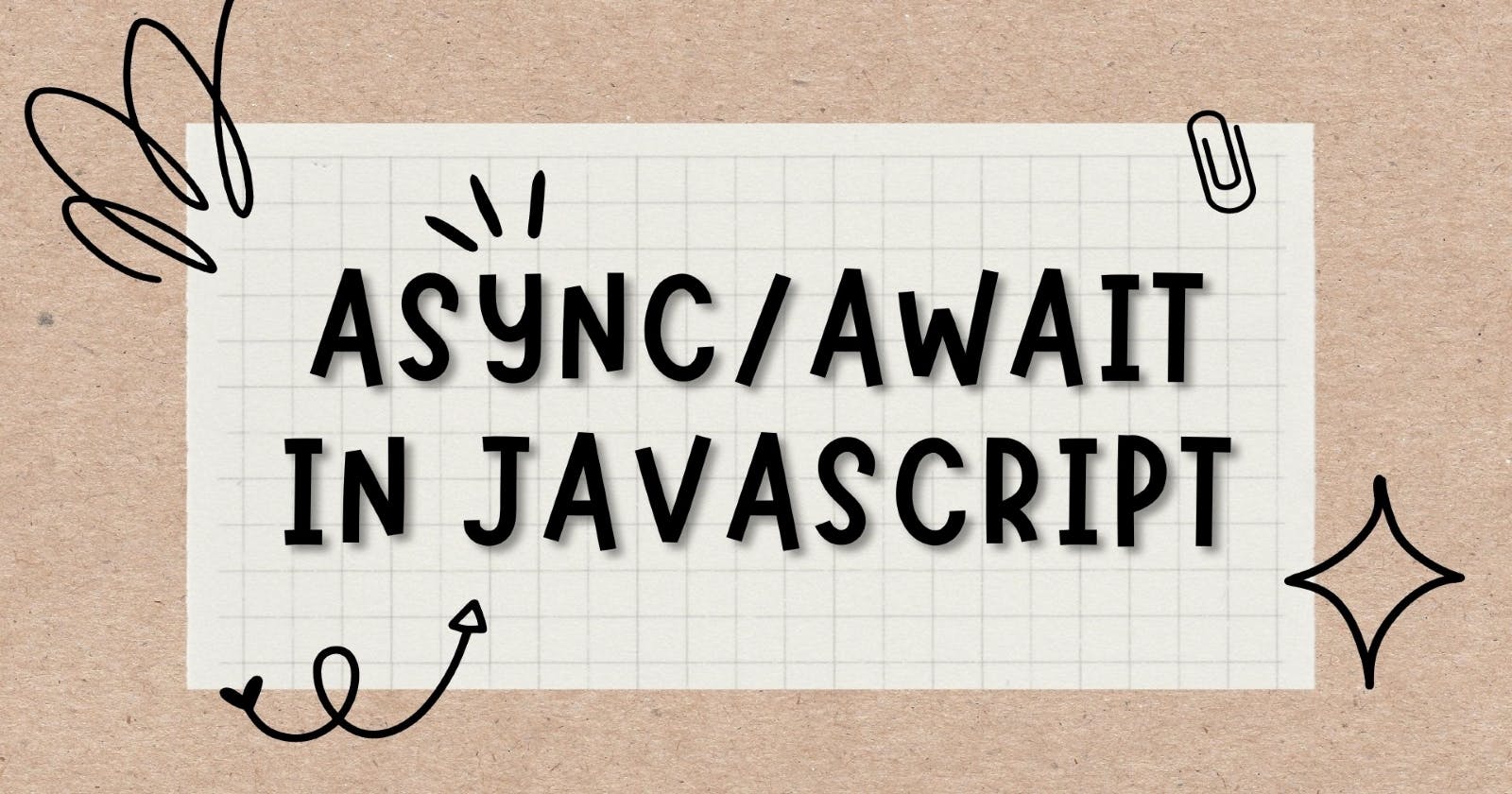We use the then() and catch() method to handle promises. But we have another way of handling promises and that is async/await. Sometimes, using too many then() and catch() creates messy and unreadable code. async/await is just a more elegant way of handling promises than then() & catch() and it is easier to read & write.
To use async/await, we have to use async before a function and await keyword before the promise inside the async function.
await keyword makes javascript wait until the promise settles and returns its value.
An async function always returns a promise.
await is always used inside the async function.
Using async/await
Let's understand this with an example, First, we will create a promise then we will handle that promise with both methods-
then() & catch()
async/await
Creating a Promise =>
// Promise created
function myPromise(){
return new Promise(function(resolve,reject){
let data = true
if(data){
setTimeout(()=>resolve("Data fetched"), 2000)
}else{
reject("Error occurred")
}
})
}
let promise = myPromise()
Handling the promise with then() & catch() =>
promise.then((res)=>console.log(res)).catch(err=>console.log(err)).finally(()=>console.log("runs anyway"))
// Data fetched
// runs anyway
Handling the promise with async/await =>
async function promiseHandler(){
try{
let res = await promise
console.log(res)
}
catch(err){
console.log(err)
}
finally{
console.log("runs anyway")
}
}
promiseHandler()
// Data fetched
// runs anyway
Using then() & catch() with async function
We know that the async function always returns a promise object.
To handle that promise returned by the async function we can use then() & catch().
async function myPromise(){
return "Data fetched"
}
console.log(myPromise()) // Promise { 'Data fetched' }
// Handling the promise returned by async function myPromise using then()
myPromise().then(res=>console.log(res)) // Data fetched
Final Words
And that’s it for this blog.
I hope you’ve found this blog a good referencing resource and thank you for reading.
If this blog was helpful, please do like, comment and share. Thanks, see you in the next blog.✌️
